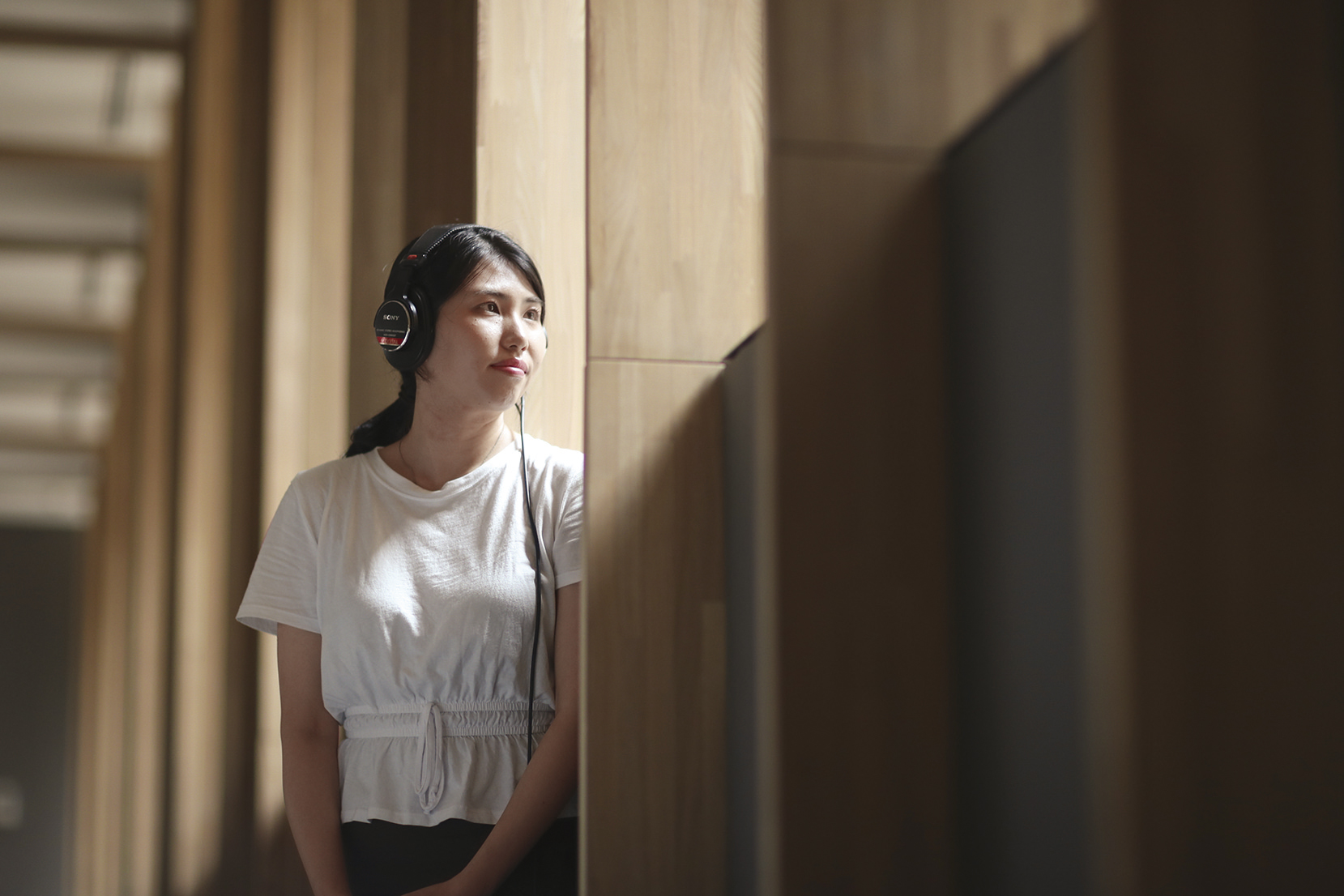This time, we interviewed Dr. Chifumi Suzuki, a graduate of the Banno Lab who completed her doctoral studies at Meijo University and is now a faculty member in the Department of Urban Science. She shared memories of her time as an undergraduate and graduate student, and also insights into her current research and teaching career.
Dr. Chifumi Suzuki
Could you briefly explain the theme of your research during your student years, including the laboratory you belonged to?
I’ve always been interested in the individuality of the human voice, which led me to join the Banno Laboratory, known for its expertise in audio and speech signal processing. My research focused on analyzing the unique vocal characteristics of singers by studying the features of impersonated singing voices.
What inspired you to pursue that line of research?
There were already a number of studies on the individuality of speaking voices, but relatively few on the individuality of singing styles. That’s why I decided to explore this under-researched area.
What is your current research focus and goal?
Lately, I’ve been analyzing singing voices produced using vocal techniques that have not yet been widely studied. My goal is to uncover how individuality is expressed across different singing methods and styles.
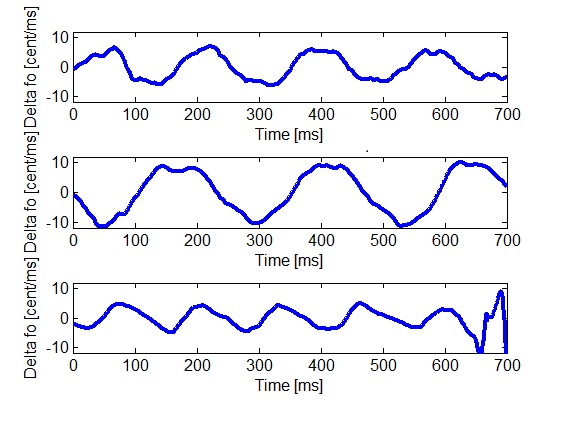
A visualization showing how changes in pitch (fundamental frequency) over time in vibrato sections differ between singers.
The chart reveals that the temporal characteristics of vibrato vary depending on the singer.
You currently specialize in “audio and speech signal processing” in the Faculty of Urban Science. What kind of courses (lectures or practical classes) do you teach?
The course I teach is called Cognition and Information Processing. It’s a lecture-based course that broadly covers sound. For example, in the unit focusing on the human voice—a sound we encounter every day—I explain how the voice is produced and what makes it unique to each individual speaker. Other topics include the structure of non-voice sounds and how the ear, our organ for perceiving sound, works.
What role do you think sound plays in urban environments?
I believe that sound expresses the characteristics of a city. For example, in areas with heavy traffic, the constant noise of vehicles is often regarded as a problem, while in less populated areas, the scarcity of human voices and daily sounds results in a quieter atmosphere. Because sound is always around us, I see it as a barometer that reflects the nature of the urban environment.
What kind of research are students in the Faculty of Urban Science working on?
In my seminar, students are encouraged to choose a research topic based on their own interests related to sound. Recent projects have included analyses of sounds produced in sports such as baseball, badminton, and volleyball, as well as studies on the vocal characteristics of idol singers and band vocalists. One particularly memorable project focused on the sound of meat sizzling while it cooks.
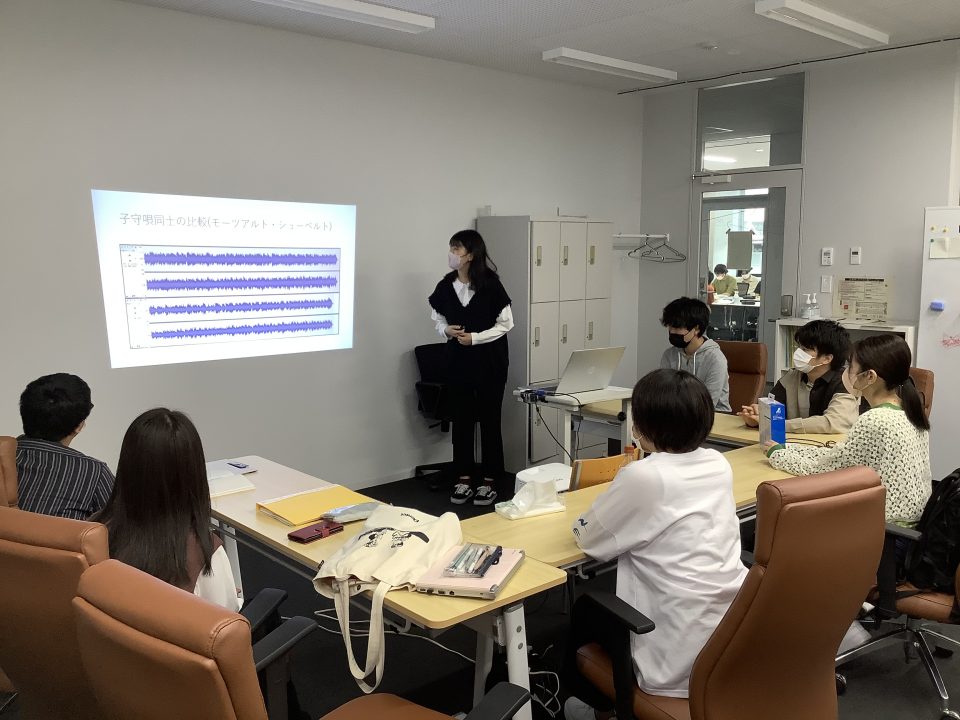
What made you decide to become a university faculty member?
From the time I entered university, I knew I wanted to study voice-related topics, and I was fortunate to be accepted into the lab I had hoped for. As I continued my research through graduate school, I realized that I wanted to keep pursuing this field long term. That was one of the main reasons. At first, I never imagined myself giving lectures or supervising students. But as I gained experience through my own research, I started to feel a desire to teach and share what I had learned.
Do you find students in the Faculty of Urban Science similar to those in the Department of Information Engineering? Are there any differences?
In the Department of Information Engineering, my impression was that many students were very dedicated to their research, especially when it came to solving issues pointed out during seminar discussions with their professors. Students in the Faculty of Urban Science also work very hard on the exercises and assignments given during class, and I feel that this level of commitment is something they have in common with computer science students.
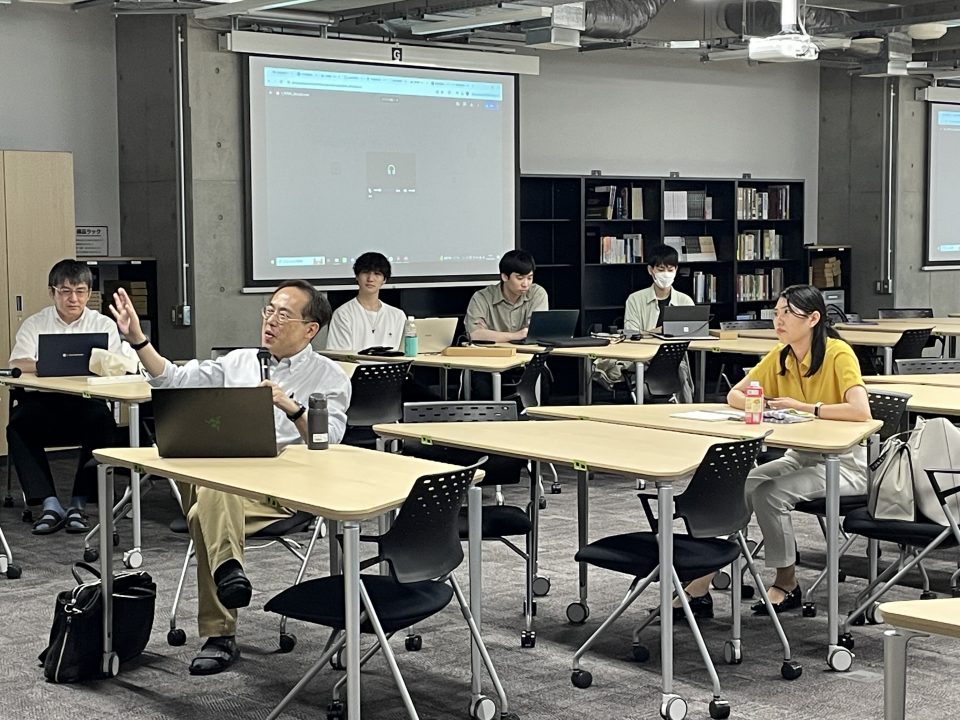
Left: Professor Asahi / Front: Professor Banno / Right: Dr. Chifumi Suzuki
Since becoming a faculty member, have you faced any challenges?
At first, I struggled quite a bit with how to structure my lectures and determine the appropriate level of difficulty. During the first semester of my first year, all classes had to be conducted online due to the impact of COVID-19. I couldn’t get a sense of the students’ reactions or atmosphere, and I found myself constantly creating and revising lecture materials without much feedback. From the second semester, in-person classes gradually resumed, and once I could see the students face-to-face, things became much easier. Lately, I’ve finally started to feel more comfortable in the role.
Do you have any particularly memorable experiences from your undergraduate or graduate student days?
One of the most memorable moments was attending an academic conference for the first time during my master’s program. I had the chance to listen to many presentations in my field, which was incredibly stimulating. Since research tends to be a solitary activity—just me and my computer—it was eye-opening to learn about the kinds of work being done by others in the same age group.
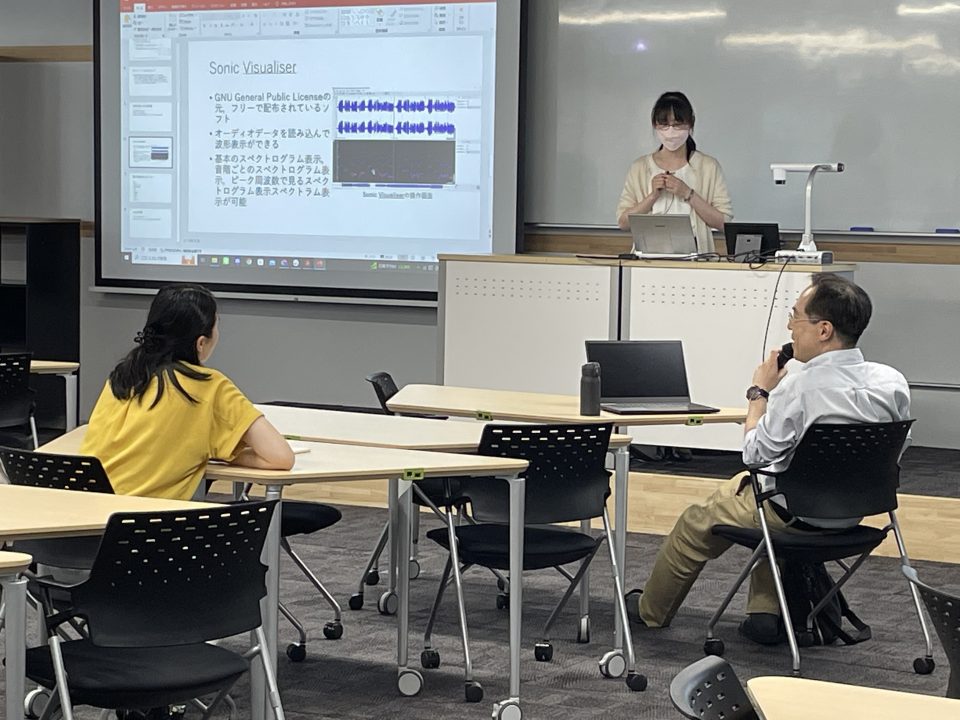
Dr. Chifumi Suzuki commenting alongside Professor Banno
What kind of student were you?
Before I was assigned to a lab, I usually attended classes with a small group of friends. After joining the lab, I was the only female student there, so I would quietly come in and focus on my work at a computer. During my master’s program, I had classmates who advanced with me, so we often had lively conversations—both about research and other topics.
What was the best part about going on to graduate school?
Since I had wanted to study voice-related topics from the time I entered university, I’m glad I was able to continue pursuing the research I was truly passionate about.
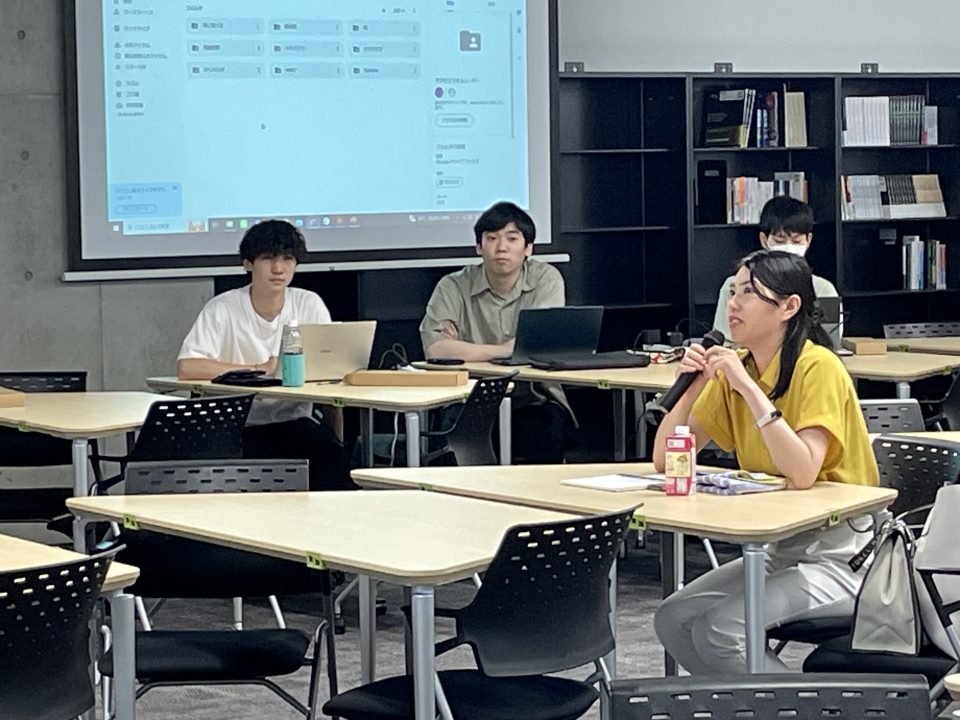
What kind of person would you recommend for graduate school?
In graduate school, you have more time to devote to research than as an undergraduate, so I would recommend it to those who truly want to continue pursuing research.
Do you have a message for your juniors in the Department of Computer Science?
University life is long, so take the opportunity to try many different things and find something you can truly be passionate about.
[Interview Date] November 21, 2024

